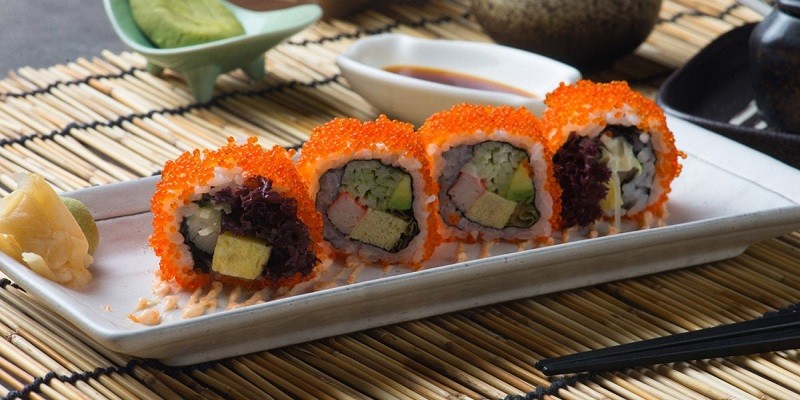Yes, you can eat fish roe while pregnant, but it is important to ensure it is pasteurized or cooked to avoid potential risks of foodborne illnesses and contaminants. Always consult with your healthcare provider before including it in your diet.
Fish roe, also known as fish eggs, is a delicacy enjoyed in various cuisines around the world. During pregnancy, many women wonder if it is safe to consume fish roe due to concerns about mercury, contaminants, and foodborne illnesses. This article explores the safety, nutritional benefits, and precautions associated with eating fish roe while pregnant.
What is Fish Roe?
Fish roe refers to the fully ripe internal egg masses in the ovaries of fish and certain marine animals. It is used both as a cooked ingredient in many dishes and as a raw ingredient for delicacies such as caviar. Fish roe is rich in essential nutrients, including omega-3 fatty acids, vitamins, and minerals, making it a nutritious addition to the diet.
Nutritional Value of Fish Roe
| Nutritional Value | Details |
|---|---|
| Omega-3 Fatty Acids | Essential for fetal brain development and maternal heart health. |
| Protein | Supports growth and development. |
| Vitamin D | Important for bone health. |
| Vitamin B12 | Crucial for nerve function and red blood cell formation. |
| Iodine | Supports thyroid function. |
Risks of Eating Fish Roe During Pregnancy
| Risks | Details |
|---|---|
| Mercury Contamination | High levels can harm fetal brain development. |
| Foodborne Illnesses | Raw or undercooked roe can carry bacteria and parasites. |
| High Sodium | Excessive intake can lead to elevated blood pressure. |
| Allergic Reactions | Can range from mild to severe, including anaphylaxis. |
| PCBs and OCPs | Environmental contaminants that can accumulate in the body. |
Safe Ways to Eat Fish Roe During Pregnancy
To safely enjoy fish roe during pregnancy, opt for pasteurized or cooked varieties to eliminate the risk of foodborne illnesses. Ensure the roe is sourced from reputable suppliers and properly refrigerated. Incorporate it into dishes like cooked sushi rolls, canapés, salads, and omelets to enjoy its nutritional benefits without compromising safety.
Alternatives to Fish Roe During Pregnancy
| Alternatives | Precautions |
|---|---|
| Cooked Seafood | Ensure it is low in mercury and properly cooked. |
| Omega-3 Supplements | Consult with your healthcare provider for recommendations. |
| Chia Seeds | Rich in omega-3 fatty acids and safe for consumption. |
| Flaxseeds | Another plant-based source of omega-3s. |
| Pasteurized Dairy | Provides essential nutrients like calcium and vitamin D. |
Experts Tips
- Consult Your Doctor: Always discuss with your healthcare provider before adding fish roe to your diet.
- Choose Pasteurized Products: Opt for pasteurized or cooked roe to minimize risks.
- Moderation is Key: Enjoy fish roe in moderation to balance benefits and potential risks.
FAQs
Is it safe to eat raw fish roe during pregnancy?
No, it is not recommended to eat raw fish roe during pregnancy due to the risk of foodborne illnesses and contaminants.
How much fish roe can I eat while pregnant?
The FDA recommends consuming 8-12 ounces of low-mercury seafood per week, which can include pasteurized or cooked fish roe.
Can fish roe cause allergies during pregnancy?
Yes, fish roe can cause allergic reactions ranging from mild to severe. If you have a history of allergies, consult your doctor before consuming it.
What are the benefits of eating fish roe during pregnancy?
Fish roe is rich in omega-3 fatty acids, protein, vitamins, and minerals, which are beneficial for fetal brain development and maternal health.
Should I avoid all types of fish roe during pregnancy?
Not necessarily. Pasteurized or cooked fish roe from reputable sources can be safely consumed in moderation.
Conclusion
Fish roe can be a nutritious addition to a pregnancy diet when consumed safely. Opt for pasteurized or cooked varieties to avoid potential risks, and always consult with your healthcare provider before making dietary changes. By following these guidelines, you can enjoy the benefits of fish roe while ensuring the health and safety of both you and your baby.
Last Updated on June 1, 2024 by Marjorie R. Rogers, MA (English), Certified Consultant

